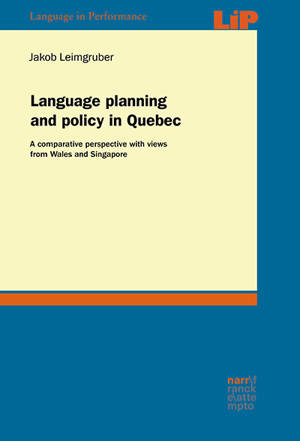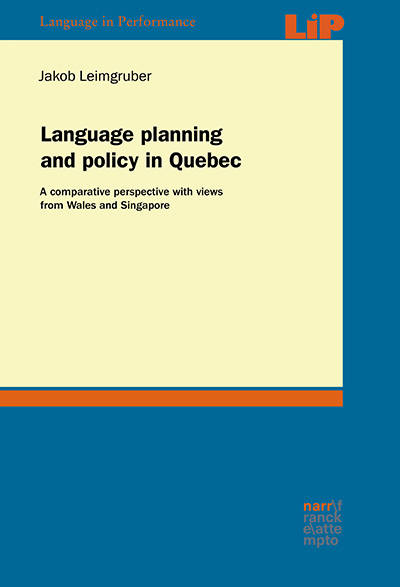
Bedankt voor het vertrouwen het afgelopen jaar! Om jou te bedanken bieden we GRATIS verzending (in België) aan op alles gedurende de hele maand januari.
- Afhalen na 1 uur in een winkel met voorraad
- In januari gratis thuislevering in België
- Ruim aanbod met 7 miljoen producten
Bedankt voor het vertrouwen het afgelopen jaar! Om jou te bedanken bieden we GRATIS verzending (in België) aan op alles gedurende de hele maand januari.
- Afhalen na 1 uur in een winkel met voorraad
- In januari gratis thuislevering in België
- Ruim aanbod met 7 miljoen producten
Zoeken
Language planning and policy in Quebec
A comparative perspective with views from Wales and Singapore
Jakob Leimgruber
€ 67,45
+ 134 punten
Omschrijving
This book on language planning and policy (LPP) in the Canadian province of Quebec begins with a review of the literature on LPP both generally and in the Quebec context. It then draws on a mix of methods to illustrate language use on the ground and the way in which LPP has shaped this use. Sociolinguistic questionnaires gather information about a sample's language repertoires and attitudes. A documentation of the linguistic landscape (LL) provides information about visible language in public space, and branches into the soundscape on public transport. An ethnographic survey of customer - barista interactions in cafés reveals language choice and code-switching in service encounters. A psycholinguistic study on the reading of signs from the LL informs about the ways in which laypersons notice languages in the LL. These findings are then analysed through a comparative prism from Welsh and Singaporean perspectives, two polities where English has also received extensive attention from language planners. The book concludes with reflexions on the study of LPP in contemporary settings.
Specificaties
Betrokkenen
- Auteur(s):
- Uitgeverij:
Inhoud
- Aantal bladzijden:
- 297
- Taal:
- Engels
- Reeks:
- Reeksnummer:
- nr. 52
Eigenschappen
- Productcode (EAN):
- 9783823383154
- Uitvoering:
- Paperback
- Afmetingen:
- 152 mm x 277 mm
- Gewicht:
- 466 g

Alleen bij Standaard Boekhandel
+ 134 punten op je klantenkaart van Standaard Boekhandel
Beoordelingen
We publiceren alleen reviews die voldoen aan de voorwaarden voor reviews. Bekijk onze voorwaarden voor reviews.









